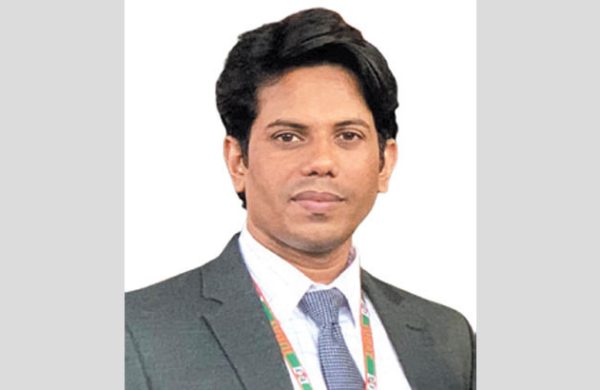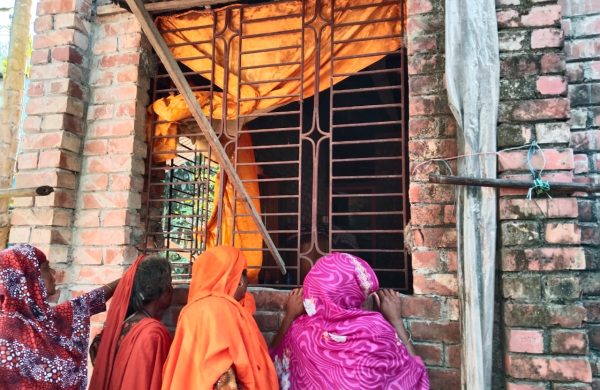Vilifying our police force will not help in gaining people’s confidence
- Update Time : Monday, June 3, 2024

—-SAHARA TUJ ZOHRA—-
In Bangladesh, the police are a significant law enforcement organization. It is an organization to defend human rights is. Police had a unique duty to protect the public, fulfil moral and social needs, and leave a lasting mark during COVID-19. Despite positive deeds, accusations of human rights violations are common. Newspapers often report torture, murder, drug trafficking, and land grabbing incidents. However, the police are primarily responsible for upholding human rights and representing mankind. Bangladeshs police have a distinguished history, playing a crucial role in the 1971 liberation war and displaying bravery during the COVID-19 pandemic.
Police actions are under scrutiny, with allegations of torture, murder, drug trafficking, stealing, deceit, and land appropriation. News articles also reveal police officers raping women and recently a young woman accused a duty officer of sexual abuse. Mahmudul Haque, the officer in charge, was suspended after rape accusations. The most amusing thing is that occasionally, cops may give a charge sheet against a deceased man. On June 12, the Daily Protham Alo revealed that the police had filed a charge sheet under the name of the deceased person.
In any nation, the police are the most important organization. They are the bodies that the state has empowered . The term “police” originates from the Greek term polis, meaning city or polity, and is often associated with maintaining peace and preventing criminal activity in society.A K M Shahidul Haque, the former IGP of Bangladesh, asserts that the police are crucial to preserving harmony and tranquility in society. The police are a crucial component of the criminal justice system, responsible for preventing and detecting crime, protecting citizens lives and property, maintaining peace, enforcing laws, defending constitutional rights, investigating incidents, and enhancing citizens quality of life.
But because of the intense pressure from several pressure organizations, police are forced to commit human rights violations. But officers should use force or weapons only when necessary to protect vulnerable populations and ensure their rights.
Human rights refer to basic rights and freedoms that all people are entitled to enjoy regardless of nationality, sex, age, or ethnic origin, race, religion, language, or other status. Human rights are conceived as universal and egalitarian. These rights exist as natural rights or as legal rights, in both national and international law. Human rights are emphasis on basic principles without them people cannot understand their inherent human status. Human rights, including life, liberty, freedom from slavery, speech, expression, work, and education, are based on equality, universality, dignity, non-discrimination, and responsibility, and must be upheld by states.
The Constitution actually defines how the police operate. But there is a cause for alarm when it comes to police abuses of human rights. Administrators or police professionals may find it easier to implement policy changes that will improve the publics perception of the force if they have a thorough understanding of the causes of police violations of human rights.
Police enforce laws, protect citizens rights, and enforce penalties in the criminal justice system. They are authorized state agents responsible for arrests, detentions, and searches.
The Code of Criminal Procedure (CRPC) gives the police its authority. According to the Constitution of Bangladesh, chapter -5 sections—46,48,49,50,51,52,53,54,55,58,62 police are entitled to arrest and they often use force or arms at the time of arresting somebody. Section 46 provides instructions on how to make an arrest as well as how to thwart an attempt at one. Section 47 allows police to arrest individuals seeking justice after a search, and Section 48 outlines procedures for non-entry cases. Section 49 allows police to smash windows and doors, inspect a persons body, seize a weapon, and make arrests without a warrant. Sections 57, 58, 59, 62, and 63 outline private persons arrest and polices obligation to report apprehensions. Section 33 of the 21 constitution safeguards citizens rights.
State systems can create criminal laws that encourage arbitrary imprisonment, arrests, and torture. The Special Powers Act of 1974 allows police to hold suspects for crimes that could harm state interests, following Code of Criminal Procedure Section 54.
Police use coercion, violence, and overreacting during questioning to obtain confessions, causing frustration, trauma, and fatigue, affecting wellbeing, decision-making, and work effectiveness.
Promotions based on connections may lead to less effective police officers, compromising public safety due to lack of morality and authority, potentially contributing to police wrongdoing.
“Deprivation cop syndrome” arises when police officers feel disgruntled and abandoned due to the criminal justice systems flaws, public disapproval, lack of media coverage, and conflicted feelings about crime and criminals. This can lead to feelings of powerlessness and cynicism.
The “Law Enforcement Code of Ethics” and the “Canons of Police Ethics” were developed to clearly define the behaviour that is suitable for police officers and to provide them with guidance while they carry out their responsibilities in order to uphold the highest calibre of work. Police ethics are based on values like courage, honesty, loyalty, and allegiance, while personal ethics are based on autonomy, beneficence, justice, and non-maleficence. Police must make difficult decisions regarding human rights violations.
Police officers face moral dilemmas due to conflicting ethical norms, with 55% not taking ethics courses or understanding sworn oaths. Law enforcement administrators emphasize upholding professional ethics for human rights protection.
Undoubtedly, the police play a crucial role in upholding laws in Bangladesh, and they are especially responsible for safeguarding human rights. The structure, organization, and governance of many police forces in Western nations, including the USA, England & Wales, Belgium, Norway, Sweden, Denmark, the Netherlands, and Scotland, have seen major changes in the last ten years thanks to the system of moral values ethics. It is crucial for the police profession to end the inhumane and prejudiced behaviour of police officers and to guarantee equitable public security ethics education.
(The writer is a contributor)



















